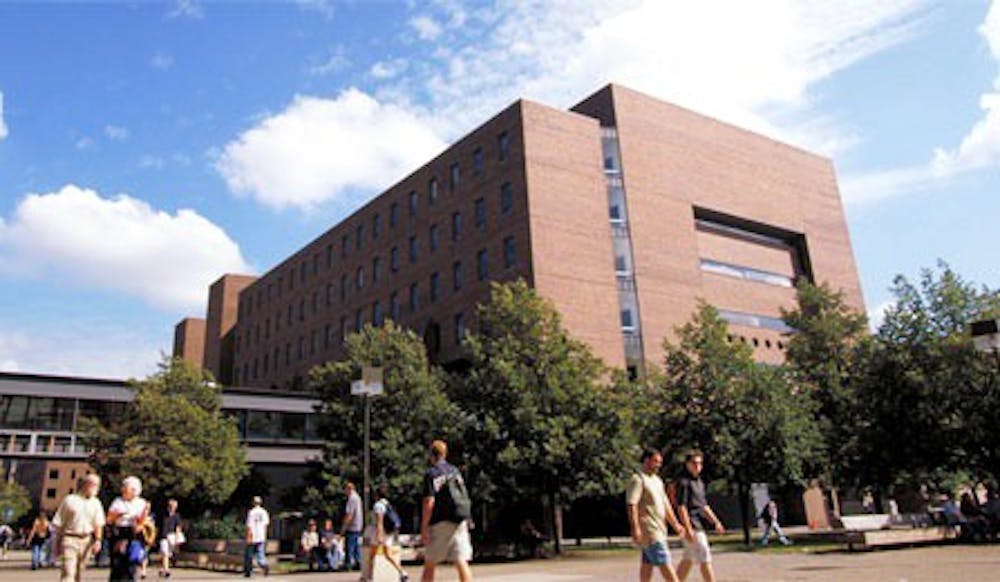A UB alumnus is asking a State Supreme Court justice to decide if a student-housing nonprofit linked to the UB Foundation should make its records and meetings public.
John N. Lipsitz, an alumnus of the law school, requested records from the Faculty-Student Housing Corp. in January 2017, and then again in March. Ed Schneider, executive director for the UB Foundation, denied the requests, citing a 2011 State Supreme Court decision that said the UBF and its affiliate organizations were not subject to open government laws. Lipsitz hired another lawyer, Sean Cooney, of local law firm Dolce Panepinto, to represent him in the matter.
In 2010, Michael T. Quigley petitioned the State Supreme Court for access to the UB Foundation’s records. Justice Patrick H. NeMoyer dismissed the petition and Quigley, a local writer for the alternative weekly newspaper Artvoice, never appealed the decision.
The Foundation has relied steadily on NeMoyer’s ruling ever since; however, there is not a strong precedent for these cases in New York State. For instance, before NeMoyer’s ruling, two other State Supreme Court justices ruled that the SUNY Research Foundation and the Empire State College Foundation – two entities similar to the UB Foundation – were subject to the state Freedom of Information Law.
The State Assembly and Senate considered several bills that would have required more transparency from entities like the UB Foundation. The bills never went past committee, in part because of UB lobbying efforts, according to The Buffalo News.
For instance, in 2012, UB spent thousands of dollars on lobbying in the first half of the year, while the legislature considered a bipartisan bill subjecting university-affiliated foundations to freedom-of-information laws, state records show. A state report listed the bill under a section documenting subjects UB expected to lobby.
Separately, the UB Foundation paid a lobbying firm $20,000 to represent its interests in Albany during the same period. The transparency bill was also on the UBF’s radar, state records show.
The Foundation’s lawyer, Charles W. Malcomb II, said this case is simply re-litigating the Quigley investigation, the Buffalo News reported.
Lipitz and Cooney disagree. They argue in their court papers that fees managed by the Housing Corp. are public funds, paid by students or their parents to live in the on-campus residence halls. Quigley’s 2010 petition did not address the Housing Corp., according to The Buffalo News.
The UB Foundation is the largest university foundation in the SUNY system and considered one of the most powerful nonprofits in the Western New York area.
Members of the Buffalo community have been clamoring for the UB Foundation to open its books for years. The matter is gaining heightened scrutiny after the federal convictions of former UB administrators Dennis Black and Andrea Costantino, who oversaw various realms of the Faculty-Student Housing Corp.
Black and Costantino embezzled over $330,000 in public funds while managing the Faculty Student Association, they admitted in court.
The Housing Corp. formed out of a lack of public funding for dormitories, Schneider said in his affidavit. The auxiliary organization is able to leverage its assets and borrowing capacity to finance, develop and construct student housing without relying on taxpayer money, Schneider said.
But Lipsitz argues that the crossover between the Foundation’s public and private dealings should place their dealings in the public domain. For example, UB can withhold grades and transcripts from students who don’t make housing payments, Lipsitz pointed out.
Justice Diane Devlin will hear oral arguments on the case Thursday, Oct. 26, according to The Buffalo News.
Sarah Crowley is the senior news editor and can be reached at sarah.crowley@ubspectrum.com





